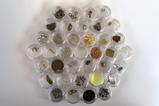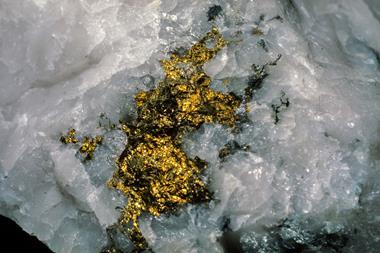What science communication can learn from a summer of sport

The northern hemisphere summer of 2024 has been replete with sport. Not just the usual suspects like Wimbledon, Tour de France and The Open, but also plenty of the once-every-four year variety – the Olympics and Paralympics, and the European championships in men’s football.
I write this piece in a state of sports-lag. Some serious modifications to my southern hemisphere sleep schedule have permitted me to enjoy many heartstopping moments in the wee hours. Already sleep-deprived from my personal favourites of football and tennis, I’m now in peak spectator fitness for the Paris Olympics. The highs and lows of this sporting summer (read: Australian winter cocooned in a blanket) have caused me to reflect on what those of us who want to share science more effectively with the public could learn from the sporting world. How can we foster the sense of community, excitement and collective attention that sport so readily engenders?
The Science World Cup?
Scientists need to think more carefully about how we can spark greater interest in our work from the broader public. Could we organise an international science communication event every four years that’s live-streamed all over the world? What would it look like and how would we encourage people to tune in? Here are some of my early morning musings.
Science is a process
When we watch sport we see the near misses, the superhuman effort and the elation or despair felt by participating athletes. As scientists we’re not very good at talking about the process of science with the public – or even with each other. We share news of grant success and paper publication, but we should be much better at communicating what happens in between these milestones. The ups and downs of life in the lab or out in the field are stories that should be told.
There’s something for everyone
Many sports fans follow their team all year round and are completely up to date on all of the stats, fixtures and punditry. But there’s also plenty of room for those of us whose interest is piqued more rarely – perhaps only at major international events like the Paralympics. I know next to nothing about gymnastics for instance, but every four years I become completely hooked. I learn by watching and listening to the commentators but my enjoyment isn’t diminished because of a lack of expertise. This should be the same for science – we need people to feel welcome to pop in by making sure that the science is accessible to different levels of knowledge or interest. Similarly, just as there is huge variety in sports and codes, there’s a huge variety in science and different stories or discoveries will appeal to different people and at different times; we need to make this clear.
Participation should be an option
I haven’t played football for a very long time sadly, but part of the reason I enjoy watching the beautiful game is due to fond memories of playing with friends in the school yard and at weekends. Indeed, most of my favourite sports to watch are those I played at some point during school or at university. If every young person had the opportunity to participate in citizen science in school and to continue this connection throughout their lives, perhaps this would increase public interest. This is something for us chemists to really reflect on as there are relatively few citizen science projects centred on our discipline.
Science is a human endeavour
All sporting events involve fierce competition to identify the winning individual, team or nation, but it isn’t all about who’s crowned champion. Our enjoyment is based on the grit and determination of all participants. We also feel more connected to athletes when we know about their lives and what led them to take up their sport. As scientists or science communicators we should share more of this human connection: why we’re interested in science, the professional and personal roadblocks we’ve managed to overcome in our careers and why others should consider a life scientific.
Teamwork makes the dream work
Sure, there are plenty of sporting icons who are idolised by fans and many sports that are individual pursuits, but there’s also a strong emphasis on the importance of teamwork that is often missing in our communication of scientific success. We see the coach, the trainer and the substitutes on our screens and we know their stories too. We also see the people who make sporting spectacles possible – the groundspeople, the umpires and the medics, to name just a few. Again, the equivalents of these characters are often missing in the stories we share about science.
I don’t know that science needs any more prizes (unless they celebrate teams instead of individuals), but it would be great to share some of its joy and wonder more widely.

















No comments yet